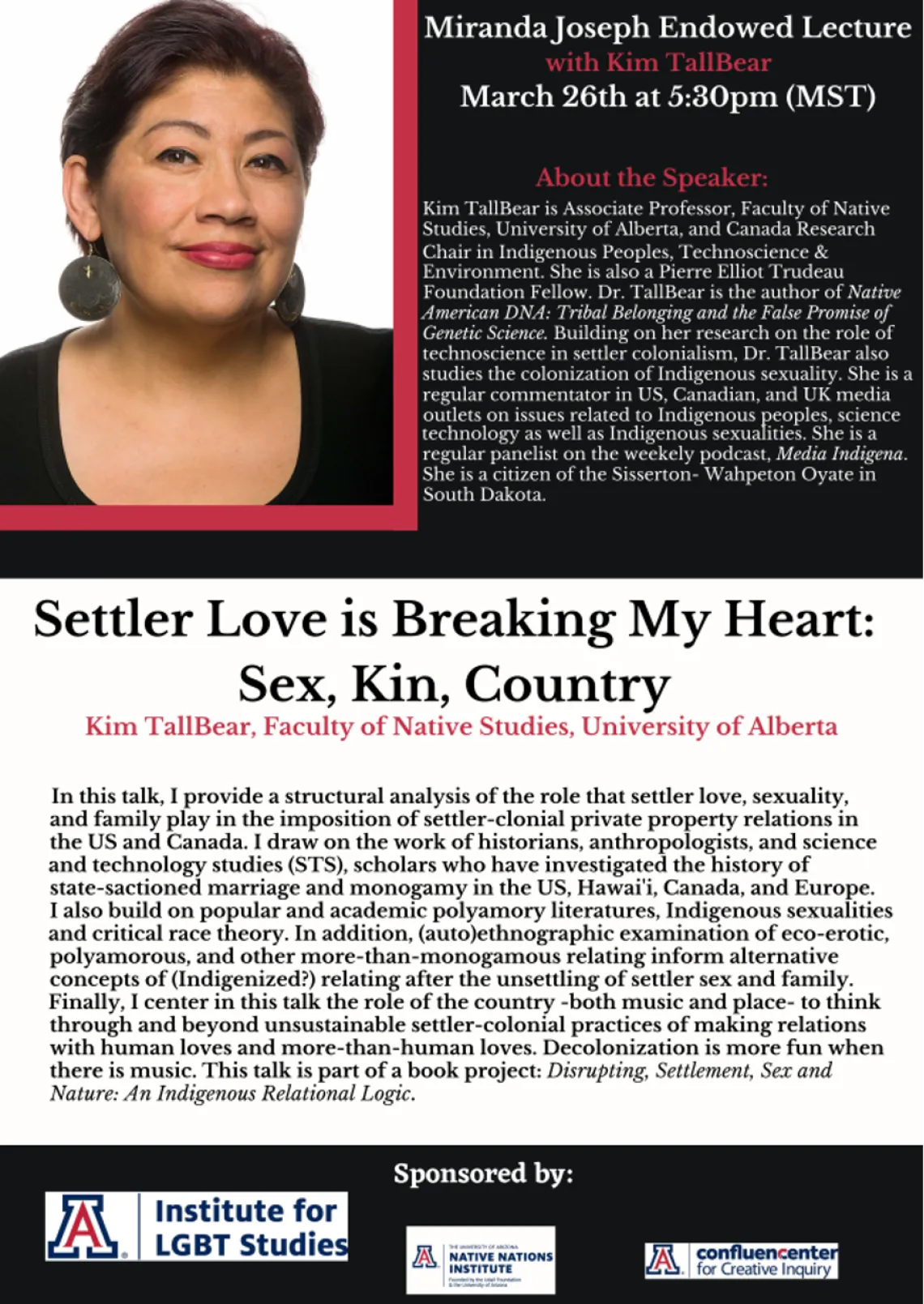
When
Friday, Mar. 26th, 2021
5:30 PM (MST) via Zoom webinar
Register for this event at https://tinyurl.com/MJELTallBear
Kim TallBear, Faculty of Native Studies, University of Alberta
Kim TallBear is Associate Professor, Faculty of Native Studies, University of Alberta, and Canada Research Chair in Indigenous Peoples, Technoscience, and Environment. She is also a Pierre Elliot Trudeau Foundation Fellow. Dr. TallBear is the author of Native American DNA: Tribal Belonging and the False Promise of Genetic Science (University of Minnesota Press, 2013). Building on her research on the role of technoscience in settler colonialism, TallBear also studies the roles of the overlapping ideas of “sexuality” and “nature” in colonization of Indigenous peoples. She is a regular commentator in US, Canadian, and UK media outlets on issues related to Indigenous peoples, science, and technology as well as critical non-monogamy. She is a regular panelist on the weekly podcast, Media Indigena, and has been a guest on podcasts included All My Relations, Medicine for the Resistance, For the Wild Podcast, and Multiamory. She is a co-producer of the sexy storytelling and burlesque show, Tipi Confessions. She is a citizen of the Sisseton-Wahpeton Oyate in South Dakota and is also descended from the Cheyenne & Arapaho Tribes of Oklahoma. She tweets on these topics and more at @KimTallBear and @CriticalPoly. Her research websites include www.IndigenousSTS.com and www.re-lab.ca.
In this talk, I provide a structural analysis of the role that settler love, sexuality, and family play in the imposition of settler-colonial private property relations in the US and Canada. I draw on the work of historians, anthropologists, and science and technology studies (STS) scholars who have investigated the history of state-sanctioned marriage and monogamy in the US, Hawai’i, Canada, and Europe. I also build on popular and academic polyamory literatures, Indigenous sexualities and critical race theory. In addition, (auto)ethnographic examination of eco-erotic, polyamorous, and other more-than-monogamous relating inform alternative concepts of (Indigenized?) relating after the unsettling of settler sex and family. Finally, I center in this talk the role of country—both music and place—to think through and beyond unsustainable settler-colonial practices of making relations with human loves and more-than-human loves. Decolonization is more fun when there is music. This talk is part of a book project: Disrupting, Settlement, Sex, and Nature: An Indigenous Relational Logic.

